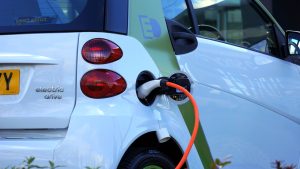Bain & Company recently released new research showing that electric vehicles (EVs) are expected to reshape the automotive industry faster
EVs are playing a major role in transport transformation, as nations continue their pursuit of climate goals and work toward green energy targets, with the Russian invasion of Ukraine accelerating those efforts and adding the additional impetus of reducing reliance on Russian oil and gas. Combined with the growth of EV adoption, EV charging infrastructure expansion is setting the stage for a historic business opportunity.
"The next decade will be unprecedented for the EV charging ecosystem worldwide," said Lucas Martin, Partner at Bain & Company. "Future winners are moving fast and building partnerships to secure the best locations and digital platforms to provide a seamless charging experience. These leaders are navigating uncertainties in the market by designing scenario-based strategies that allow them to pivot quickly when consumer behaviors or regulations shift."
Bain’s research predicts that investment dollars will initially flow into building out the infrastructure necessary to recharge EVs, which will require substantial capital expenditure on a network of convenient and reliable fast-charging stations that offer a superior customer experience. Future profitability is predicted to center on next-generation smart energy services, such as vehicle-to-grid and vehicle-to-home charging, representing one-third of the total profit pool by 2030.
Charging markets in various regions will vary depending on the share of EV sales, local driving habits, housing type, and regulatory structure. For example, the U.S. will see a far greater share of single-family-home charging products, as well as potentially slowed adoption due to the different charging standards and regulations of each individual state.
Ultimately, the EV charging market will offer a variety of opportunities for forward-thinking investors willing to embrace the challenge of building infrastructure to serve EV owners in transit, at home, at work, and at their destinations. The continuing development of smart grid and smart energy technology will open further opportunities to provide supporting services as well. With EV adoption continuing to accelerate, investors who keep both hands on the steering wheel are due to be well rewarded.

























